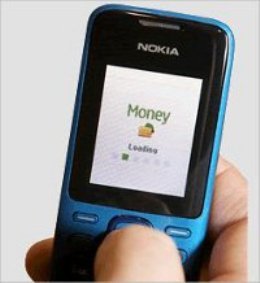Telecom Lead America: A Visa survey said nearly 90 percent of consumers in six developing countries including India want to use mobile money services in future.
The Visa Mobile Money study analyzed the financial services needs and expectations of mobile money among nearly 2,500 consumers, mobile money agents, and merchants in Bangladesh, Ghana, India, Indonesia, Nigeria and Pakistan.
Consumers’ needs for financial services are sophisticated than previously believed.
Security concerns associated with carrying cash and the need to quickly send money to family members living far away are among the key drivers for mobile money adoption.
“Our potential for driving far reaching social and economic change, while at the same time growing transaction volumes in developing countries, is significant. But we’ll limit that potential if we don’t learn to stop and really listen to our customers,” said Hannes van Rensburg, CEO of Fundamo and Group Country Manager, sub-Saharan Africa, Visa.
The success of mobile financial services is determined by how deeply a mobile money provider understands its customers and tailors the service to the needs of consumers and mobile money agents – from service menus, to marketing and education.
There is high awareness of mobile money services and capabilities among consumers in developing economies.
Across the six countries surveyed, average awareness stood at 56 percent and three countries stood out in particular:
In Ghana, awareness was at 93 percent with MTN identified as the most known mobile money provider.
In Pakistan 89 percent of the public are mobile money aware and easyPaisa is the most recognized brand.
53 percent of consumers in Bangladesh were aware of mobile money and identified bKash as the leading brand.
While many survey participants did not have a formal financial account, several examples of complex and sophisticated money management systems emerged across the six markets. Using a range of techniques, the majority of respondents shared how they set money aside for education, healthcare, emergencies and life events. The majority of consumers surveyed intend to use mobile money to send money to family members (81 percent), pay utility bills (56 percent) and save money for their family (52 percent).
The primary driver and reason to adopt mobile financial services, according to the study, is not to establish formal savings, but rather the need to protect funds from theft and the ability to more easily send funds, pay bills, school fees, etc.
Across the six countries, 80 percent of respondents cited “safety of not having to carry around a lot of cash” as the primary perceived benefit of mobile money, while 63 percent of respondents listed “speed of getting money to family members living far away” as the second most important benefit.






